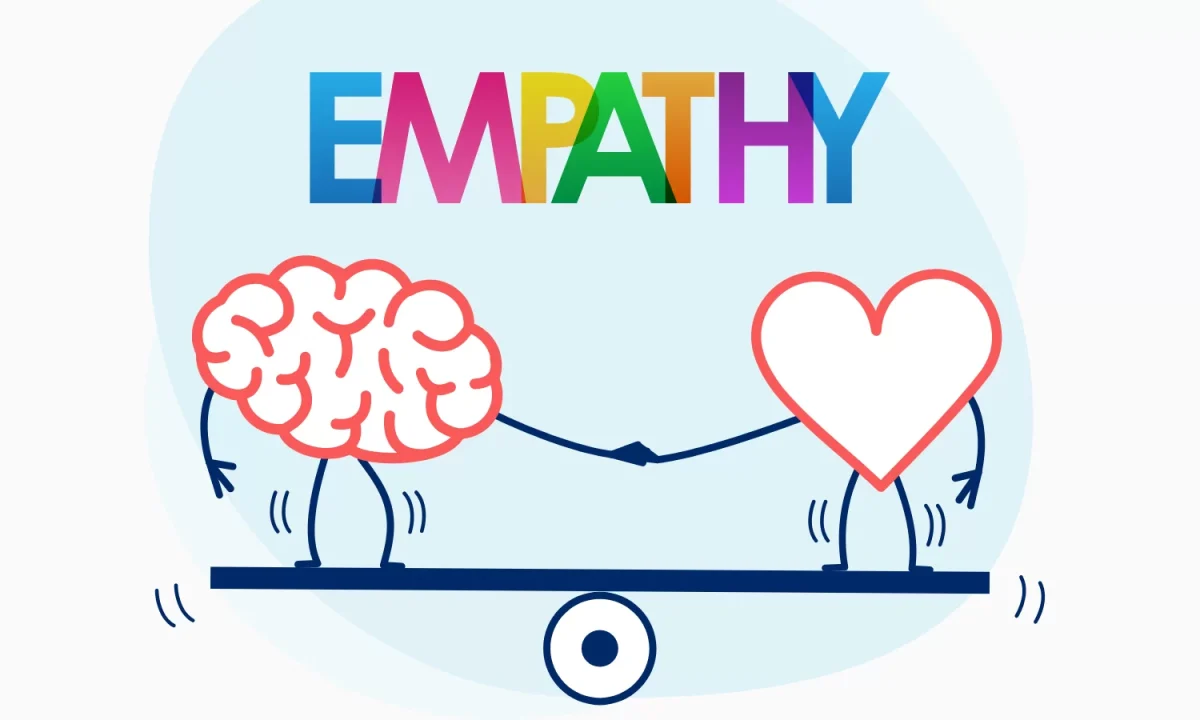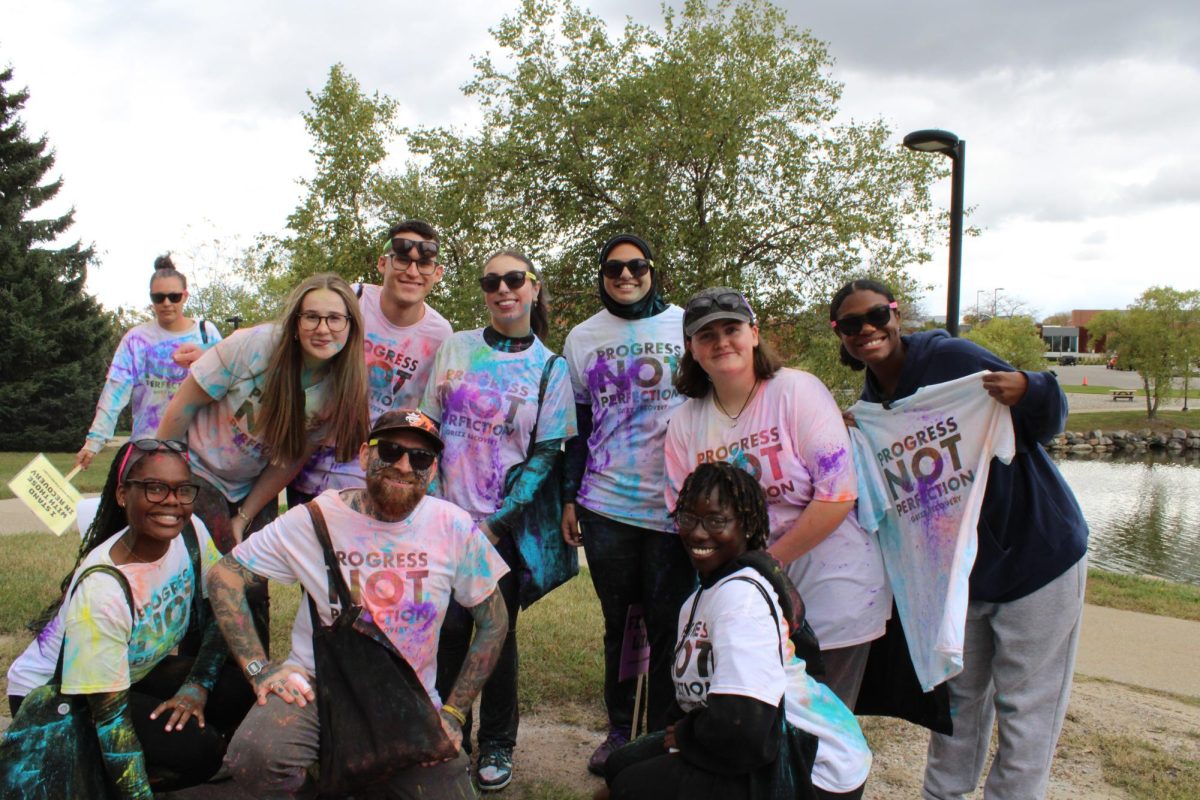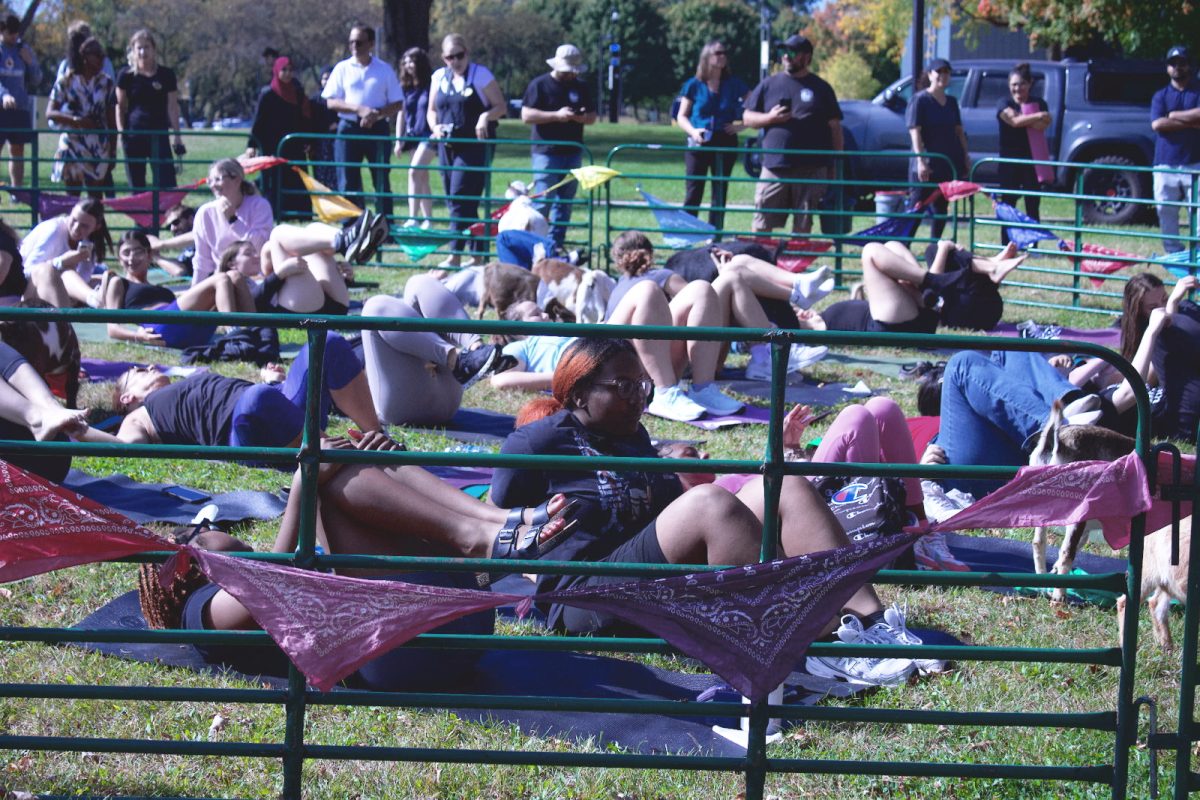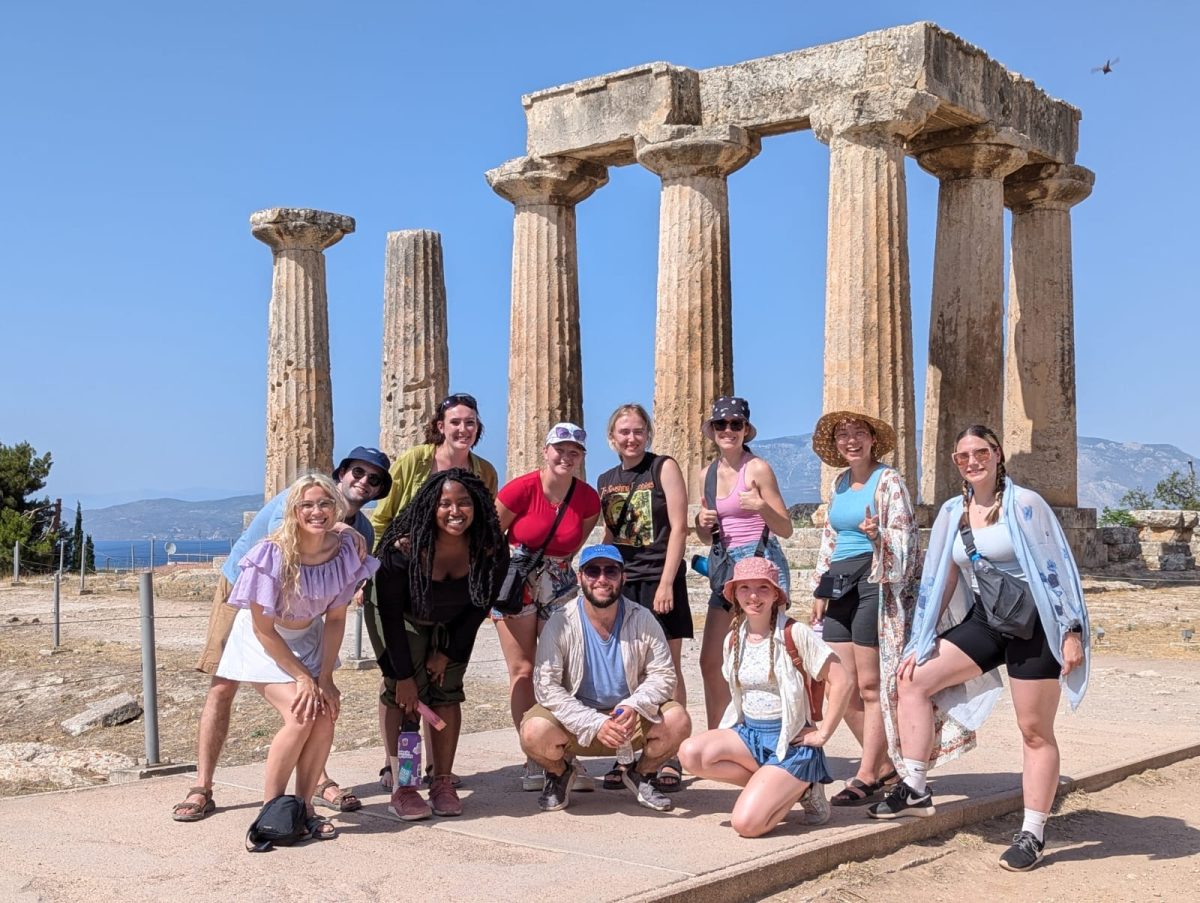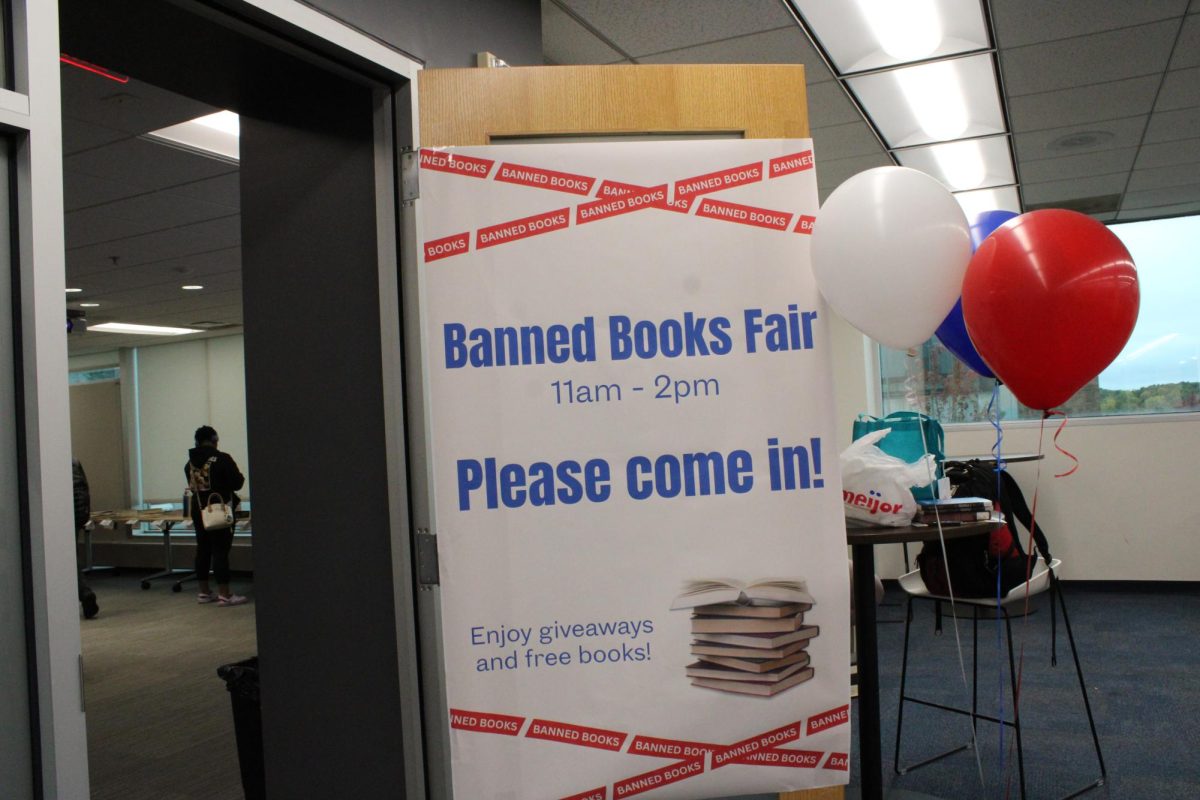The American Studies Club hosted its 9th annual American Studies Undergraduate Conference on March 20 in the Oakland Center Gold Rooms B and C.
It is the second year the conference has been held since the COVID-19 pandemic.
The conference is hosted as an opportunity for student scholars to gain experience presenting their work.
“It’s just an opportunity for undergrads to get experience sharing their work at a conference and sort of bringing what they’ve learned in class into a different setting and being able to connect it to current events that they doing outside of class, and making that bridge between,” ASC President Emma Ross said.
“Having this interdisciplinary aspect of it, where it’s not just a certain major… it’s pretty wide open,” ASC Vice President Anna Bronkhorst added. “It’s really open to anyone to share how their research and the work that they’ve done connects to whatever theme for the year.”
This year’s conference theme was “Empathy: What Does it Mean to Walk in Someone Else’s Shoes in America?” The day-long event featured discussions of empathy in various forms, such as an academic paper panel, creative fiction reading and a roundtable about the importance of empathy in education.
“We felt that empathy was a particularly timely theme. It’s an election year. We as a country are in a very polarized spot,” Ross said. “[Empathy] is a lot more complicated than it’s often portrayed as… but it kind of comes with a lot of baggage that doesn’t get talked about as much. So this is also a space to talk about that.”
“Empathy — everyone’s heard it, and it’s kind of like a ‘buzzword’ right now,” Bronkhorst added. “It’s really interesting to see the different perspectives on what empathy actually is and how people interact with that word and its actual meaning.”
Shannon Waite presented two stories — her story, “Good Milk,” and fellow creative writing major Hope Greve’s story, “We Make Milk,” in a presentation called, “Got Milk? Two Creative Works in which Milky Worlds Collide.” The stories explore themes of motherhood and a black market for breast milk.
The two stories were written alongside each other specifically for the conference.
“We wanted these thoughts that we had with other people and to be able to use our writing to try and create empathy for our characters with the conference being about empathy,” Waite said. “We wanted to be able to add our voices to that conversation.”
“Writing these absurd stories about these dark things draws attention to problems that people live through,” she added.
Ross, Bronkhorst, Lizzi Matti, Brad Ciaramitaro and Skye Traugott participated in a roundtable discussion called “Empathy in Education: Student Teachers’ Perspectives.”
The future educators talked about the importance of incorporating empathy in the classroom in the subject matter.
Ciaramitaro, who student teaches biology at a high school level, said he connects social issues to the scientific concepts the class is exploring.
“From the science perspective, it’s a lot of finding those social issues and finding the science… then getting the kids to realize the emotion they can invest in healing these social issues that they don’t normally think about when it comes to sciences,” he said.
The panel also discussed approaching students with empathy and understanding while maintaining educational standards.
“Listen to [students], even if you don’t have all the answers,” Traugott said. “It goes a long way.”
Overall, presenters said the opportunity to share ideas was beneficial.
“The conference gives a great opportunity for people to share the academic and creative work that they’re doing at Oakland, and I’m excited to be a part of it,” Waite said.
For more information about the American Studies Club, visit their Grizzorgs page. The club will be looking for new executive board members for the next year. If interested, contact Professor Timothy Donahue at [email protected].



